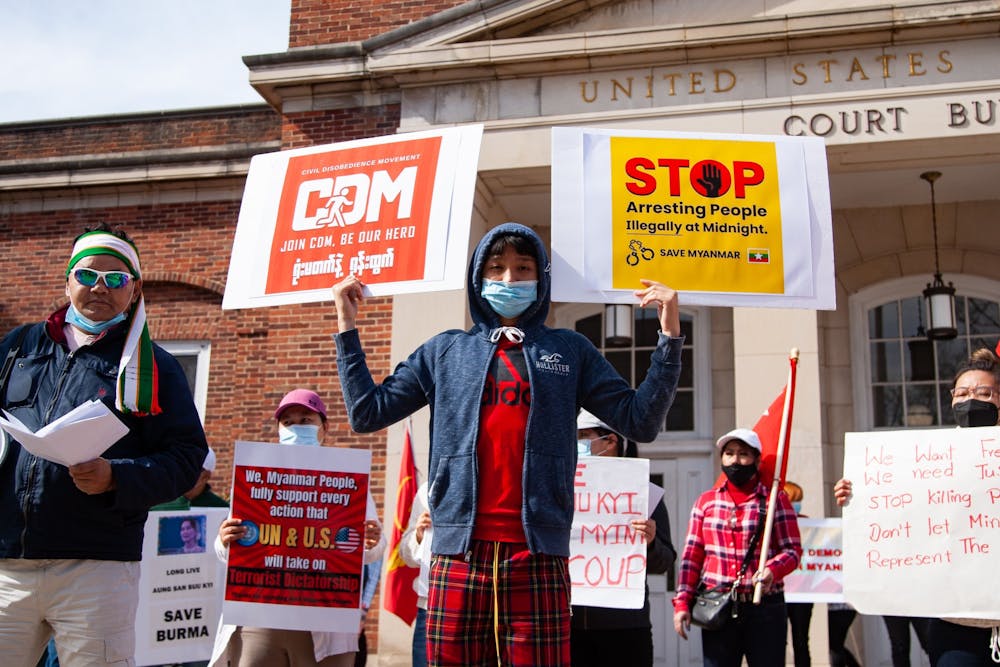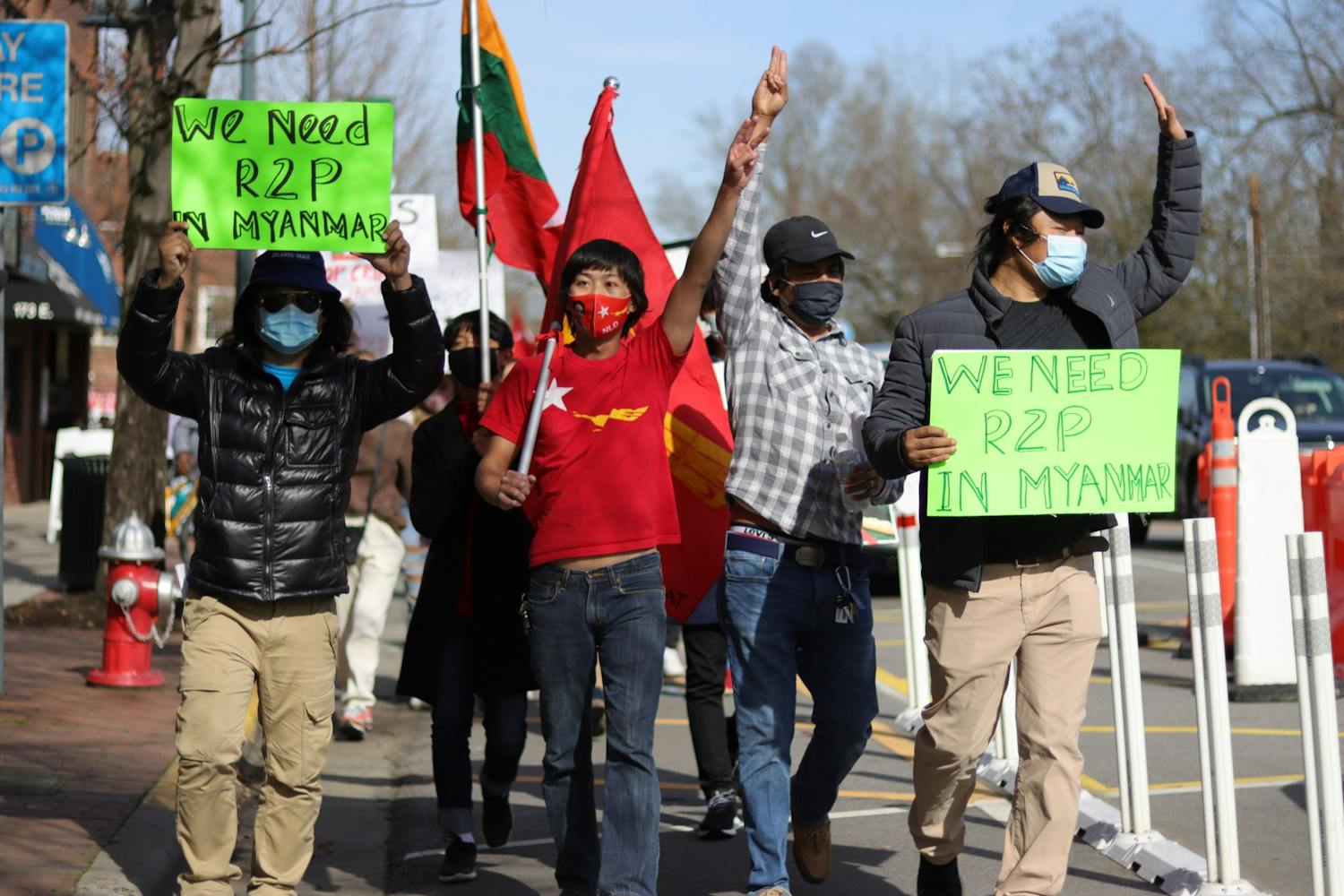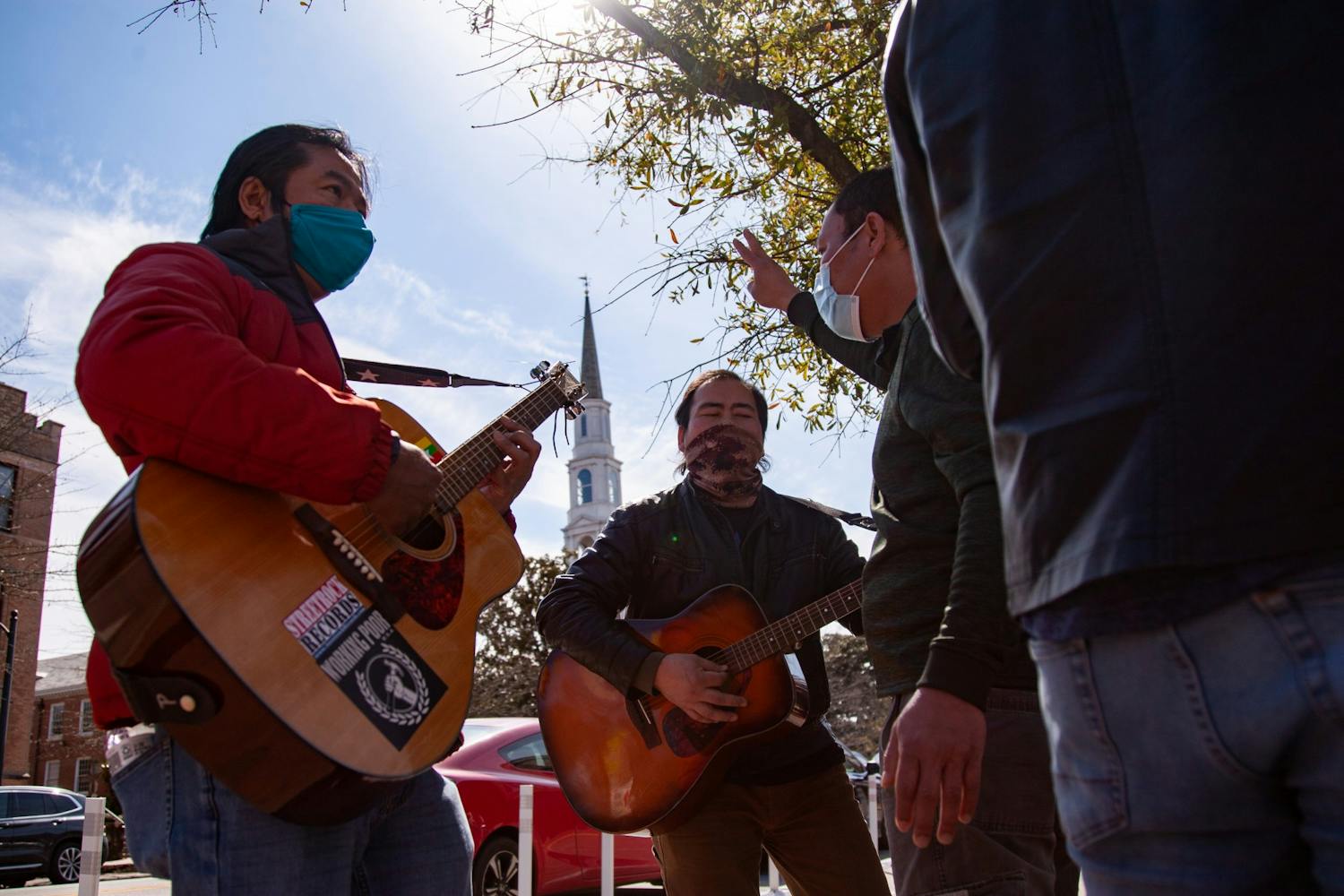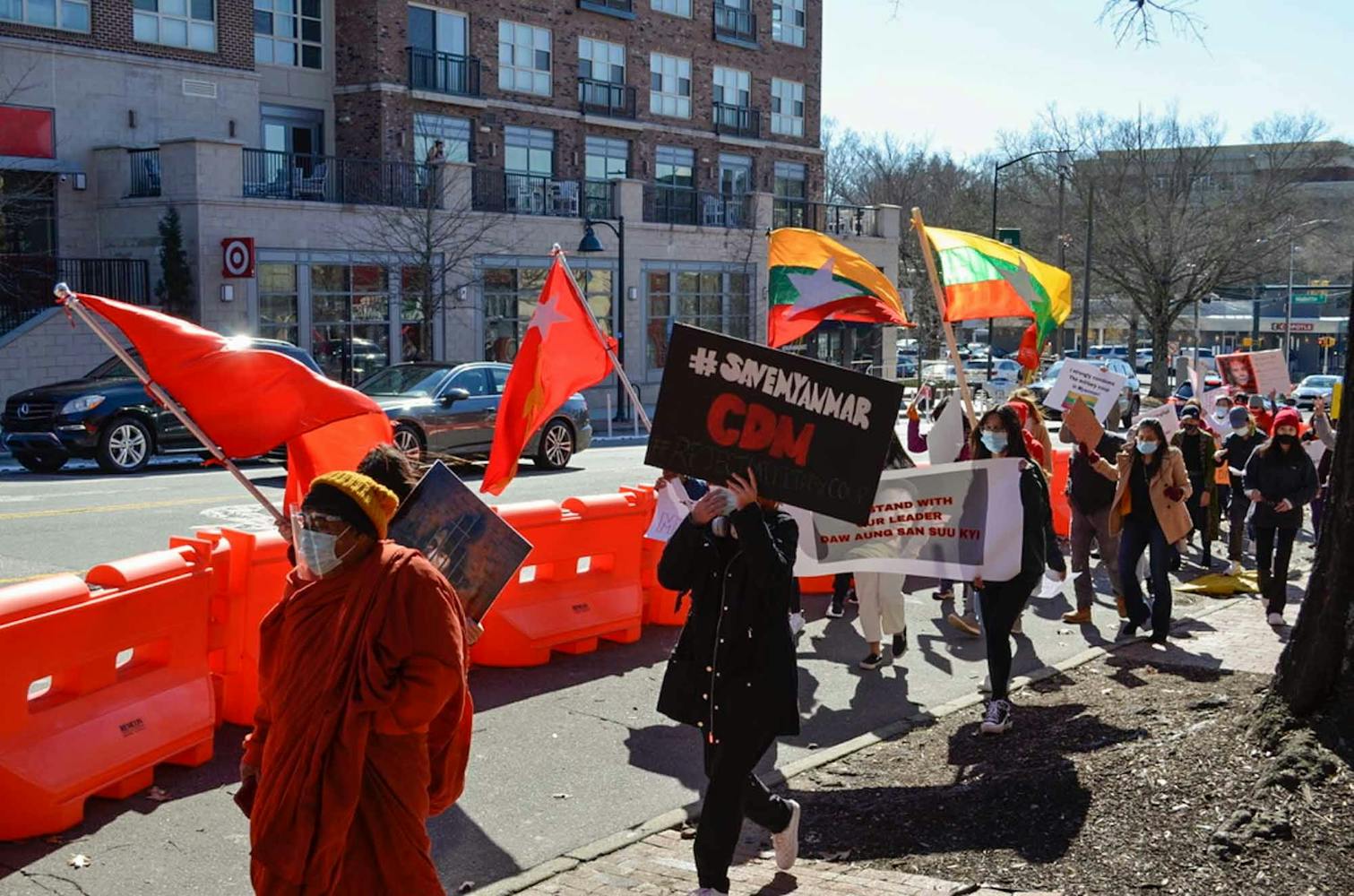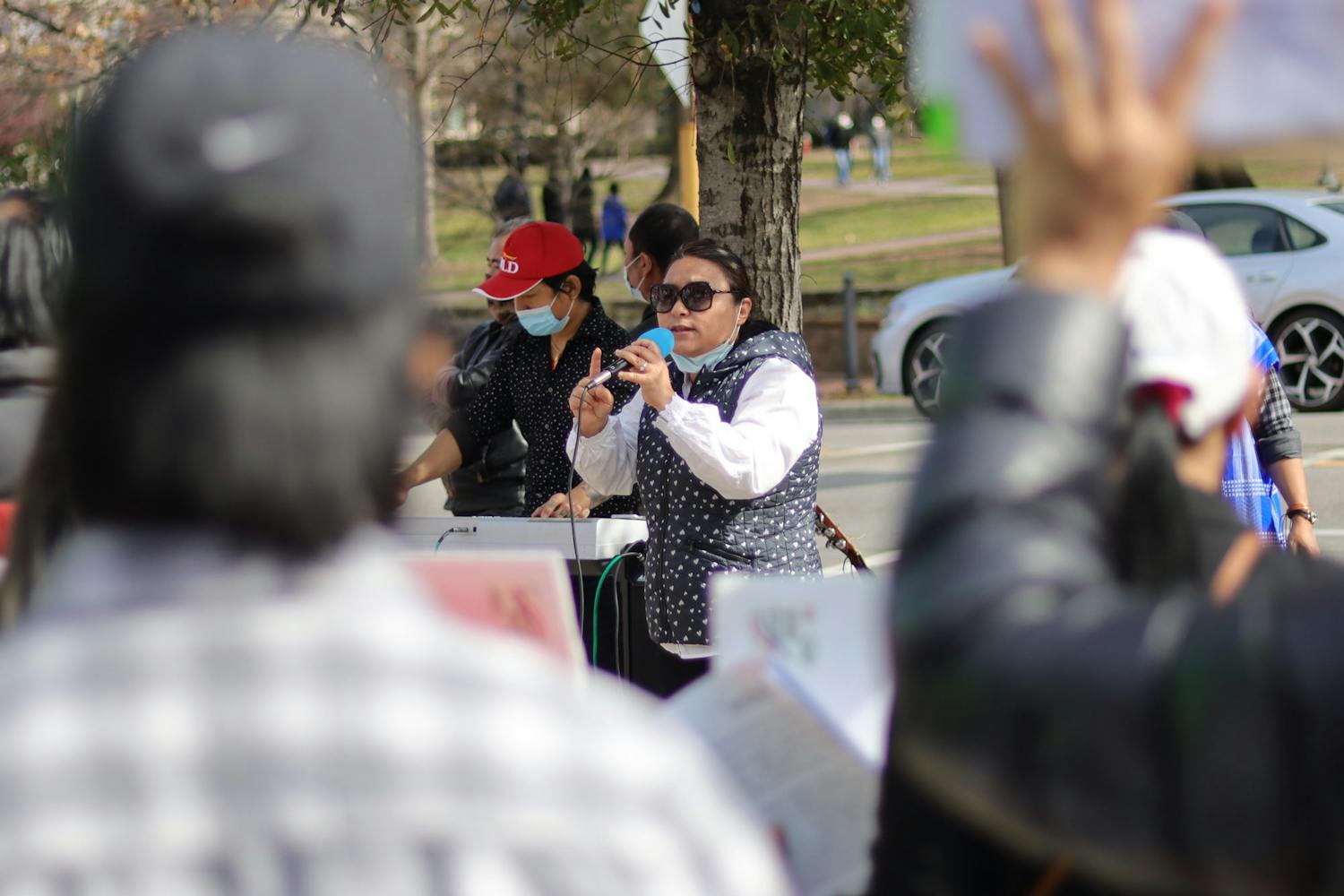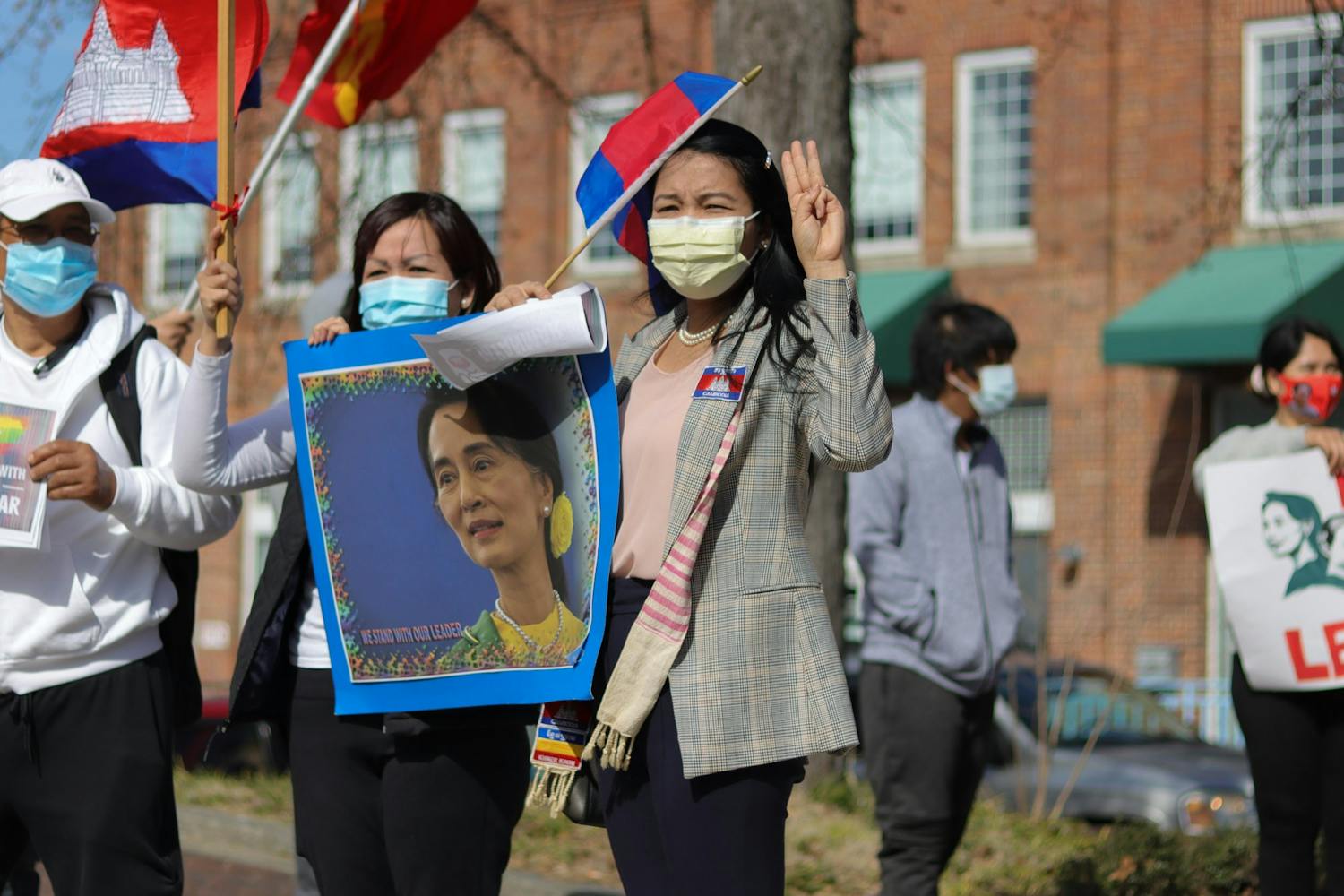On Thursday, the streets of Yangon, Myanmar, filled with the sound of clanging pots and pans as citizens continued the protest against the military coup d’etat that took control in early February.
On Feb. 1, armed forces known as the Tatmadaw, led by Senior General Min Aung Hlaing, staged a coup and declared a year-long state of emergency in Myanmar, also called Burma. The coup followed the democratic election of members from Myanmar’s civilian ruling party, the National League for Democracy (NLD).
North Carolina is home to over 8,000 refugees from various ethnic groups within Myanmar, including Karen, Chin, Kachin, Mon, Rakhine, Shan and Wa. As of 2016, over 1,000 of those refugees live in Chapel Hill and Carrboro.
On Feb. 20 and March 6, Orange County refugees gathered on Franklin Street to protest these events in their home country and demand that local representatives speak up for Myanmar.
“These are my people and my country that are dying,” Gan Poo, a Burmese-American who participated in the March 6 Chapel Hill protest, said. “My family is back there, and we want to help save them.”
On the day of the coup, State Counselor Aung San Suu Kyi, de facto head of government, and President Win Myint, as well as many other members of the NLD, were detained by the military.
Since then, citizens of the country and refugees from Myanmar across the world have held protests against the military rule and demanded the release of political leaders. They also began a civil disobedience movement, with staff from the Central Bank of Myanmar, commercial banks, hospitals and police stations on strike.
Frances O’Morchoe is an instructor at the Parami Institute in Yangon who studies Southeast Asia and spoke at a panel hosted by the Carolina Asian Center in February. O'Morchoe said she’s heard the sound of pots and pans every night since the coup.
“My hope of hopes is that these protests will keep the momentum going, and that the eyes of the world will be kept on Burma because of the protests on the street,” O’Morchoe said.

